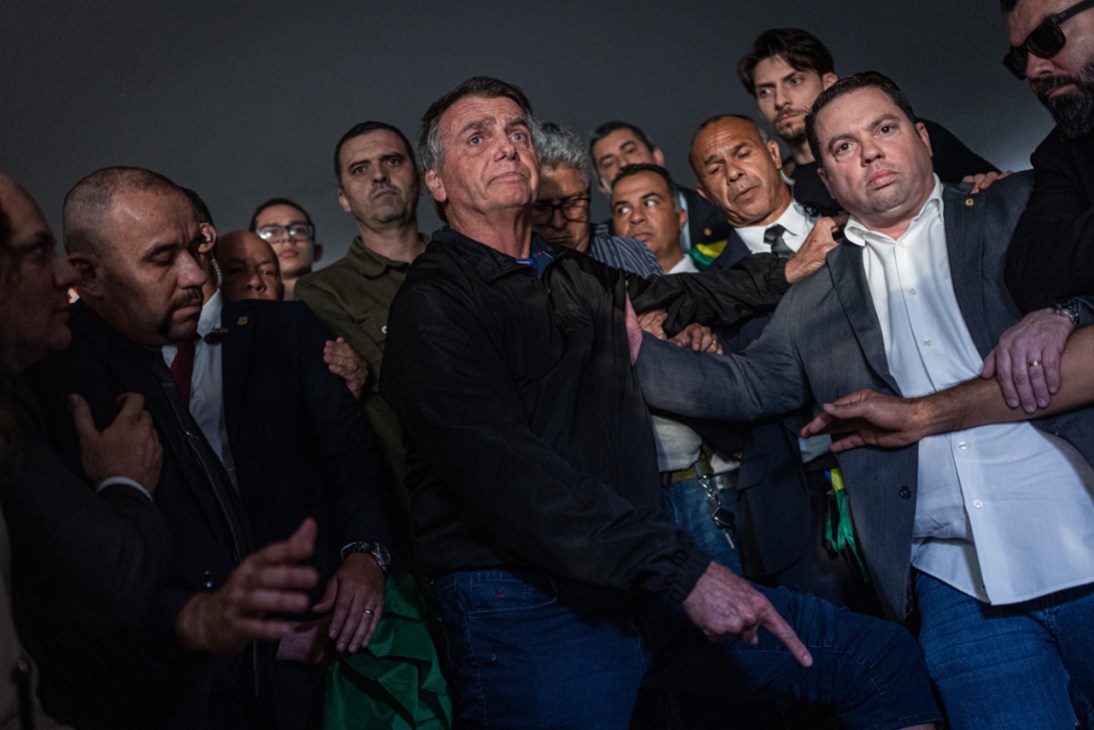Sporting an ankle monitor, Bolsonaro seems a spent force as Trump’s tariff threats backfire
Jair Bolsonaro cuts a forlorn figure these days. Until recently, Brazil’s hard-right former president was able to pack arenas and inspire crowds to hit the streets. His rallies would shut down the country’s biggest boulevards as supporters, clad in the green and yellow of the national flag, chanted for the man they called mito (“legend”). Those days now feel like a distant memory. Last week justice officials slapped an ankle monitor on him in case he attempts to flee the country before the conclusion of his ongoing criminal trial. Widely shared on social media, images of the ex-president wearing the device sparked jubilation among his critics, many of whom long to see him jailed. The feeling among his supporters was one of resignation: few took to the streets in protest. Once hailed by some as the saviour of Brazil, Bolsonaro is now isolated, intimidated and almost certainly set to be incarcerated.
He arrived at this point thanks to a series of bad decisions. Following his presidential-election defeat to Luiz Inácio Lula da Silva in 2022, he refused to acknowledge the result and, according to prosecutors, began plotting a coup d’état. The plan allegedly involved assassinating Lula, his vice-president, Geraldo Alckmin, and prominent Supreme Court justice Alexandre de Moraes. The plot fizzled out but its discovery by federal police sparked an investigation and a Supreme Court trial, which is likely to culminate in a lengthy sentence in the coming weeks.

Bolsonaro has ceaselessly lobbied for an amnesty for both himself and the thousands of his supporters who raided and trashed the country’s Congress, Supreme Court and presidential palace after Lula’s inauguration. But as ordinary Brazilians struggle with inflation, creaking public infrastructure and widespread criminality, Bolsonaro’s pleas have coincided with his fading influence. A mediocre turnout at a recent rally in São Paulo spoke volumes: his political clout is declining.
Then there are the tariffs. Donald Trump’s decision to slap 50 per cent levies on Brazilian goods in response to Bolsonaro’s purported persecution was the result of months of lobbying by Eduardo Bolsonaro, the ex-president’s son, in Washington. But the move quickly backfired. Brazilians can see that Bolsonaro is putting his own interests above those of the nation. The tariffs are expected to hurt the country’s GDP and cause more than 100,000 job losses. The hardest-hit states will be those focused on farming – the very states whose interests the former president has long claimed to champion. The Bolsonaro clan appears to have convinced the Trump administration that Brazil is living in a “judicial dictatorship”. However, outside a small bubble of diehard Bolsonaristas, this message simply doesn’t resonate. After Bolsonaro proxies signalled that he would potentially seek asylum in the US, the Supreme Court ordered that he wear the electronic anklet, imposed a curfew and forbade him from using social media.
The real winner of all of this is the incumbent leader, Lula, who has been handed a powerful electoral platform ahead of next year’s presidential elections. Since Trump’s tariff threat, he has been able to portray himself as the defender of Brazilian sovereignty and is enjoying a bump in his approval ratings. Among the losers is Tarcísio de Freitas, the governor of São Paulo and Bolsonaro’s heir apparent, who has found himself trapped between loyalty to his political benefactor and the interests of his state and the nation. Bolsonaro once campaigned on a political slogan of “Brazil above everything”. These days, his only message seems to be “Bolsonaro first”.
Bryan Harris is a Monocle contributor based in São Paulo. For more opinion, analysis and insight, subscribe to Monocle today.



